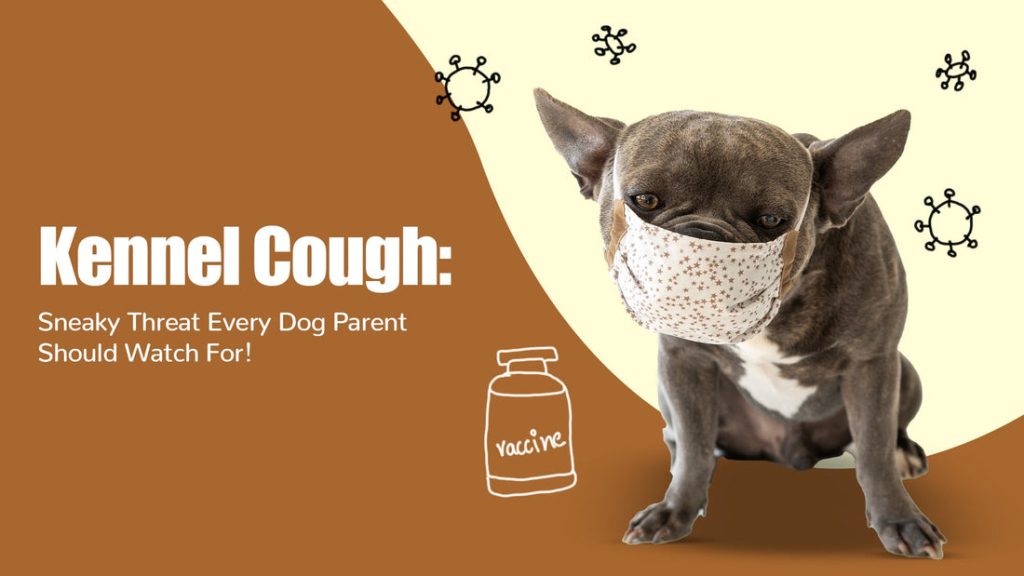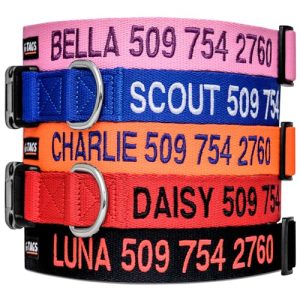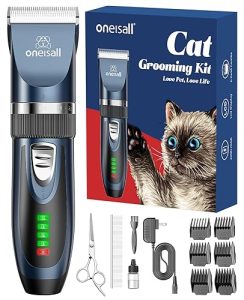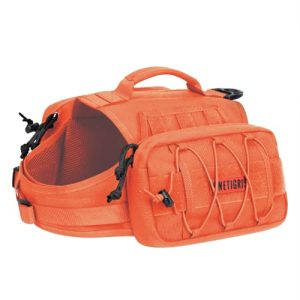If your dog has been coughing a lot lately, you might be worried about what’s going on. One common cause of that dry, hacking cough is something called kennel cough.
But what exactly is kennel cough, and how can it affect your furry friend? Understanding this condition is key to keeping your dog healthy and happy. You’ll discover what kennel cough is, how to spot the signs, and what you can do to protect your pet.
Keep reading to learn everything you need to know to take the best care of your dog.
Causes Of Kennel Cough
Kennel cough is a common respiratory infection in dogs. It spreads quickly, especially in places with many dogs. The causes include bacteria, viruses, and certain environmental factors. Understanding these helps in prevention and care.
Bacterial Agents
Bacteria are a main cause of kennel cough. Bordetella bronchisepticais the most common bacteria involved. It attaches to the dog’s airways and causes inflammation. This leads to the dry, hacking cough typical of kennel cough. Other bacteria may join the infection and make symptoms worse.
Viral Agents
Viruses also play a key role in kennel cough. Canine parainfluenza virus and canine adenovirus are frequent offenders. These viruses weaken the dog’s immune system. This makes it easier for bacteria to infect the airways. Viral infections can increase the illness’s severity and length.
Environmental Factors
Environmental conditions can trigger kennel cough outbreaks. Crowded places like kennels and dog parks increase infection risks. Poor ventilation and dusty areas irritate the dog’s throat. Stress and sudden weather changes can weaken immunity. Clean, well-ventilated spaces help reduce disease spread.
Common Symptoms
Recognizing the common symptoms of dog kennel cough can help you act quickly to care for your furry friend. The signs often resemble a cold but knowing the specifics can make a big difference. Watch closely for changes in your dog's behavior or breathing to catch this illness early.
Dry Hacking Cough
The most noticeable symptom is a persistent dry hacking cough. It might sound like your dog is trying to clear something stuck in their throat. This cough often worsens after exercise or excitement, and can last for several weeks if untreated.
Sneezing And Nasal Discharge
Your dog may start sneezing more than usual, accompanied by a clear or slightly cloudy nasal discharge. These signs indicate irritation in the respiratory tract. If you spot these symptoms, think about recent places your dog has visited where infections could spread, like dog parks or grooming salons.
Lethargy And Loss Of Appetite
Even active dogs can become unusually tired and uninterested in food. This drop in energy and appetite shows that your dog’s body is fighting an infection. Have you noticed your dog acting less playful or skipping meals? These subtle changes can be early warnings of kennel cough.
How Kennel Cough Spreads
Kennel cough spreads quickly among dogs, especially in places where many dogs gather. It passes from one dog to another through several ways. Understanding these helps in protecting your dog from catching it. The infection spreads mainly through direct contact, airborne droplets, and contaminated surfaces. Each method plays a key role in how the disease moves fast.
Direct Contact
Dogs catch kennel cough by touching each other’s noses or mouths. Close contact during play or sniffing can transfer germs. The bacteria or viruses live in the saliva and mucus. When healthy dogs meet infected ones, the illness can spread quickly.
Airborne Transmission
Coughing and sneezing release tiny droplets into the air. These droplets carry the germs responsible for kennel cough. Dogs breathing in these droplets can become infected. This makes crowded places like kennels risky for spreading the disease.
Contaminated Surfaces
The germs that cause kennel cough can survive on objects. Bowls, toys, and bedding can carry the infection. Dogs touching or licking these items can pick up the germs. Regular cleaning of shared items helps reduce this risk.
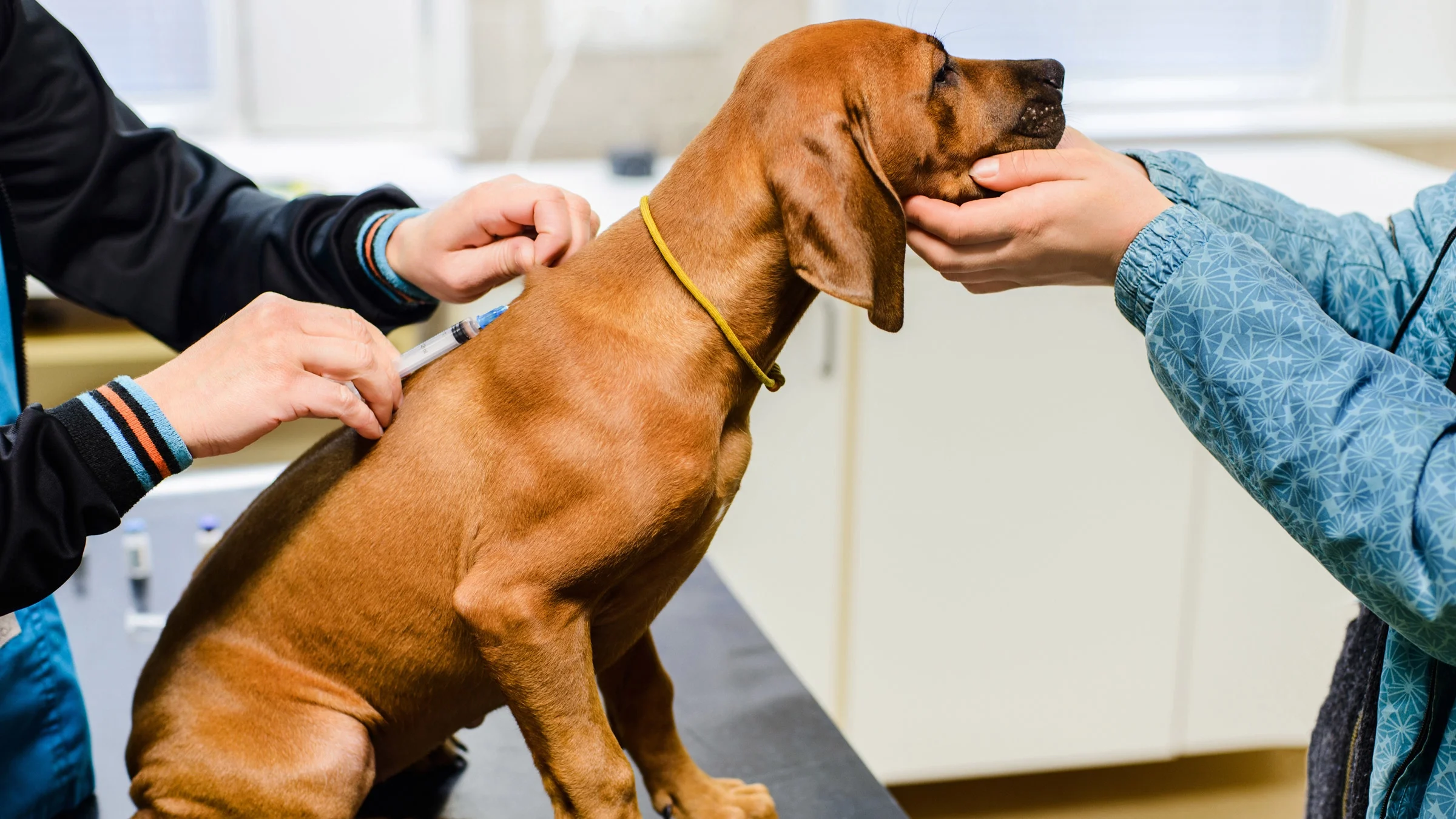
Credit: www.goodrx.com
Diagnosis Methods
Diagnosing dog kennel cough requires careful observation and testing. The goal is to confirm the infection and rule out other illnesses. Vets use several approaches to identify the condition accurately.
Physical Examination
The vet starts with a thorough physical check. They listen to the dog’s lungs and chest with a stethoscope. A dry, hacking cough is a common sign. The vet also checks the dog’s temperature and nose for discharge. Swollen lymph nodes may appear near the throat or neck. These signs help guide further testing.
Laboratory Tests
Lab tests confirm the cause of kennel cough. A swab from the dog’s throat or nose collects samples. These samples test for bacteria or viruses, like Bordetella bronchiseptica. Blood tests check for infection or inflammation. Sometimes, chest X-rays help see lung changes. Lab tests provide clear evidence of kennel cough.
Differential Diagnosis
Other illnesses can cause similar symptoms. The vet must rule out conditions like pneumonia, allergies, or heart disease. They compare symptoms and test results carefully. This process ensures the dog gets the correct treatment. Accurate diagnosis prevents complications and speeds recovery.
Treatment Options
Treating kennel cough effectively helps your dog recover faster. Treatment depends on the severity of symptoms and your dog’s overall health. Many cases improve with simple care. Some need medicines prescribed by a vet. Knowing the right steps can ease your dog’s discomfort and prevent complications.
Antibiotics And Medications
Antibiotics treat bacterial infections causing kennel cough. They reduce coughing and speed healing. Only use antibiotics prescribed by a vet. Overuse can cause resistance and harm your dog.
Cough suppressants may help calm severe coughing. These should be used cautiously and under veterinary advice. Some dogs might need anti-inflammatory drugs to reduce throat swelling.
Home Care Tips
- Keep your dog in a quiet, warm place.
- Provide plenty of fresh water to stay hydrated.
- Use a humidifier or sit with your dog in a steamy bathroom to ease breathing.
- Avoid exposure to smoke and strong smells that irritate the throat.
- Limit exercise to prevent tiring your dog.
When To See A Vet
Visit a vet if coughing lasts more than two weeks. Seek help if your dog has difficulty breathing or a high fever. Loss of appetite and extreme tiredness also need veterinary care. Puppies, older dogs, or those with other illnesses require prompt attention.
Prevention Strategies
Preventing dog kennel cough helps keep your dog healthy and happy. This contagious illness spreads quickly in places with many dogs. Using the right prevention methods lowers the chance your dog will catch it. Simple steps can protect your pet from this uncomfortable cough.
Vaccination
Vaccines offer strong defense against kennel cough. Talk with your vet about the best vaccine for your dog. Vaccination reduces the risk of catching and spreading the disease. Some vaccines protect against several types of bacteria and viruses. Keep your dog’s shots up to date for best results.
Hygiene Practices
Clean spaces help stop kennel cough germs from spreading. Wash your dog’s bedding and toys often. Disinfect food and water bowls regularly. Clean areas where your dog spends time, especially after other dogs visit. Good hygiene lowers the chance of infection and keeps dogs safe.
Limiting Exposure
Limit your dog’s contact with many other dogs, especially in crowded places. Avoid dog parks or boarding kennels during outbreaks. Watch for dogs that cough or sneeze and keep your dog away. Quarantine new dogs before introducing them to others. Reducing exposure helps keep kennel cough away.
Recovery And Aftercare
Recovering from dog kennel cough requires more than just medication. How you care for your dog after diagnosis directly affects how quickly they bounce back. Paying close attention to their daily health and activity levels ensures they heal fully and comfortably.
Monitoring Symptoms
Keep a close eye on your dog’s symptoms during recovery. Watch for worsening coughs, difficulty breathing, or loss of appetite. These signs might mean the infection is not clearing up or complications are developing.
Use a simple journal or app to track changes daily. This can help you spot patterns or sudden shifts that need immediate vet attention. Have you noticed your dog’s cough getting worse after playtime? That’s a signal to slow down.
Avoiding Strenuous Activity
Your dog’s body needs rest to fight off kennel cough effectively. Limit their physical activity until the cough has fully subsided. Even short bursts of running or jumping can irritate their airways and prolong recovery.
Try gentle walks instead of vigorous play. If your dog usually loves to fetch or chase, you might need to pause those games temporarily. How much rest is enough? When your dog starts to seem more energetic without coughing, it’s a good sign they’re ready to be more active again.
Follow-up Vet Visits
Scheduled check-ups after the initial treatment are key to ensuring your dog heals properly. Your vet can confirm the infection is gone and address any lingering issues like secondary infections. Don’t skip these appointments even if your dog seems well.
Sometimes symptoms can hide or return, so professional evaluation helps catch problems early. Ask your vet about any signs you should watch for at home and how to adjust care as your dog recovers. Would you feel more confident managing kennel cough with a clear follow-up plan?

Credit: www.youtube.com
.png)
Credit: drfrommdvm.com
Frequently Asked Questions
What Causes Dog Kennel Cough?
Dog kennel cough is caused by bacteria and viruses, mainly Bordetella bronchiseptica. It spreads through airborne droplets or direct contact with infected dogs. Crowded places like kennels increase the risk of infection.
What Are Common Symptoms Of Kennel Cough?
Symptoms include a persistent dry cough, gagging, sneezing, and mild fever. Dogs may also show reduced appetite and lethargy. Symptoms usually last 1-3 weeks but can be more severe in puppies or older dogs.
How Is Kennel Cough Diagnosed?
Veterinarians diagnose kennel cough based on symptoms and medical history. In some cases, throat swabs or chest X-rays are used to confirm infection. Diagnosis helps rule out other respiratory diseases.
Can Kennel Cough Be Prevented?
Yes, kennel cough can be prevented through vaccination and avoiding contact with infected dogs. Good hygiene and proper ventilation in kennels also reduce transmission. Vaccines help reduce severity but may not completely prevent infection.
Conclusion
Dog kennel cough is a common, contagious illness in dogs. It causes a harsh cough and can spread quickly. Most dogs recover with rest and care. Keep your dog away from sick dogs to stay safe. Vaccines help reduce the risk of infection.
Watch for signs and act fast if coughing starts. Healthy dogs bounce back soon with simple treatment. Stay informed and protect your furry friend well.

Emily Barker is the founder of ChillDogLife.com, a space dedicated to helping pup parents discover the best dog products, lifestyle tips, and cozy ideas for happier homes.
A lifelong dog lover, Emily combines her passion for pets with a knack for research to share trusted recommendations on everything from toys and furniture to health and everyday care.
Her goal is simple: to make life easier, stylish, and more joyful for dogs and the people who love them.
